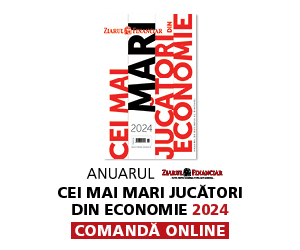Three widely debated and controversial issues were cleared up yesterday, at least from where President Ion Iliescu stands. The chief of state took a completely different stand than the Government and the ruling party in at least two of these issues.
The first example is the letter by which President Iliescu requests Parliament to reconsider the Political Party Law specifying he does not agree with the increase in the number of members required to set up a party to 50,000 people, a proposition made by the Government.
The text the chief of state instructed the MPs to review stipulates that any party shall have 50,000 starting members from 21 counties, that is five times the number the current law requires. At present, any political party may be established provided it has 10,000 starting members from 15 counties.
"The currents of ideas that lead to the polarisation of the political stage need to be the outcome of a natural development in line with the provisions of the Article 37, paragraph 1 of the Constitution and result in structuring the political competition," the president specified, adding this must not and cannot be the outcome of "formal condition, from outside the (political) phenomenon itself."
The constitutional text mentioned by Iliescu stipulates: "Citizens shall have freedom of assembly in political parties, unions and other association forms."
His conclusion was "too high a representativeness is obviously impeding such a free confrontation of programmes, ideologies and arguments."
The new text of the Political Party Law originated from the Liberals, who had set a 30,000 starting members requirement for registering a party and was then completed by the Government, with the final draft produced by the parliamentary debate stipulating an increase to 50,000 members.
The MPs will also have to review the modifications to the Penal Code, as instructed by President Iliescu in a letter specifying that imprisonment for slander and outrage should not be an option.
In the opinion of the chief of state the difference in how the law treats the insult, punished by a fine, and the slander, punishable by up to six months in prison, "is unsubstantiated." "This is why the only difference should be in the amount of the fine and not in the deprivation of liberty," Ion Iliescu feels.
He also feels that slander and insult should not be treated differently if aimed at a public servant, because such a stipulation "is in breach of the constitutional principle stipulating that all citizens are equal before the law." He added the dignity of a person was the same regardless of the position and social status of the injured party.
When it comes to early elections, Iliescu does not see eye to eye with the Government, either. The chief of state while in Skopje yesterday said organising elections before their due date was inappropriate. His statements were prompted by PNL (National Liberal Party), which called him to state his position out in the open.
"If I were to take an official position, I would say this means nothing to me, that I couldn't care less. But this is not true," Ion Iliescu answered yesterday.
He explained that organising early parliamentary elections in 2003 would prolong campaigns for two years, as the local and presidential elections would still be organised in 2004.










































